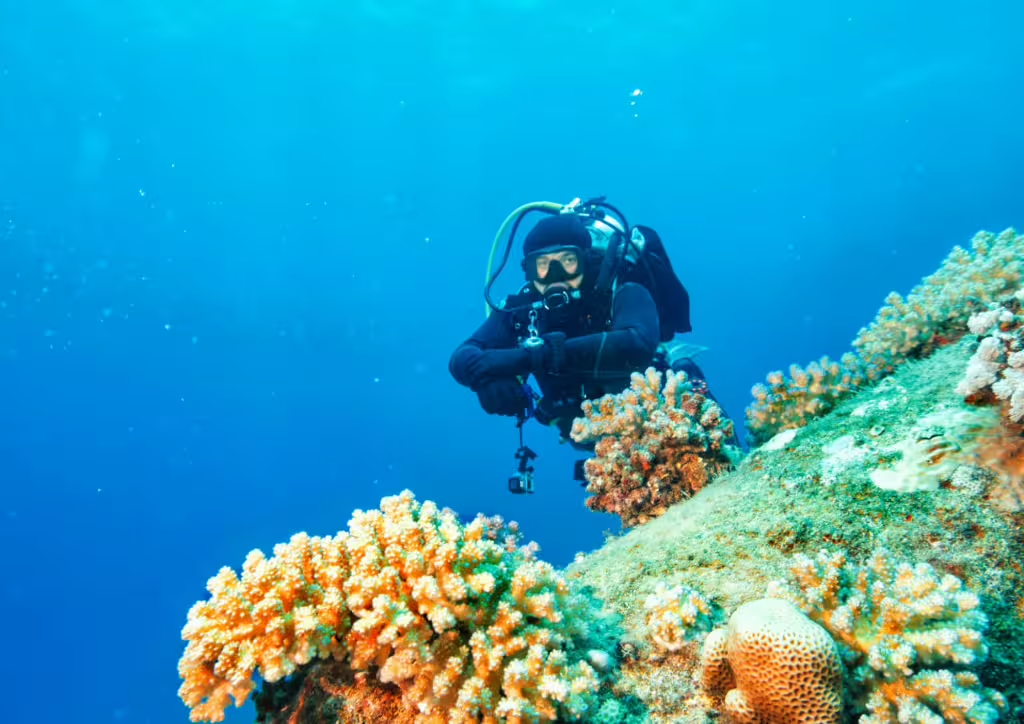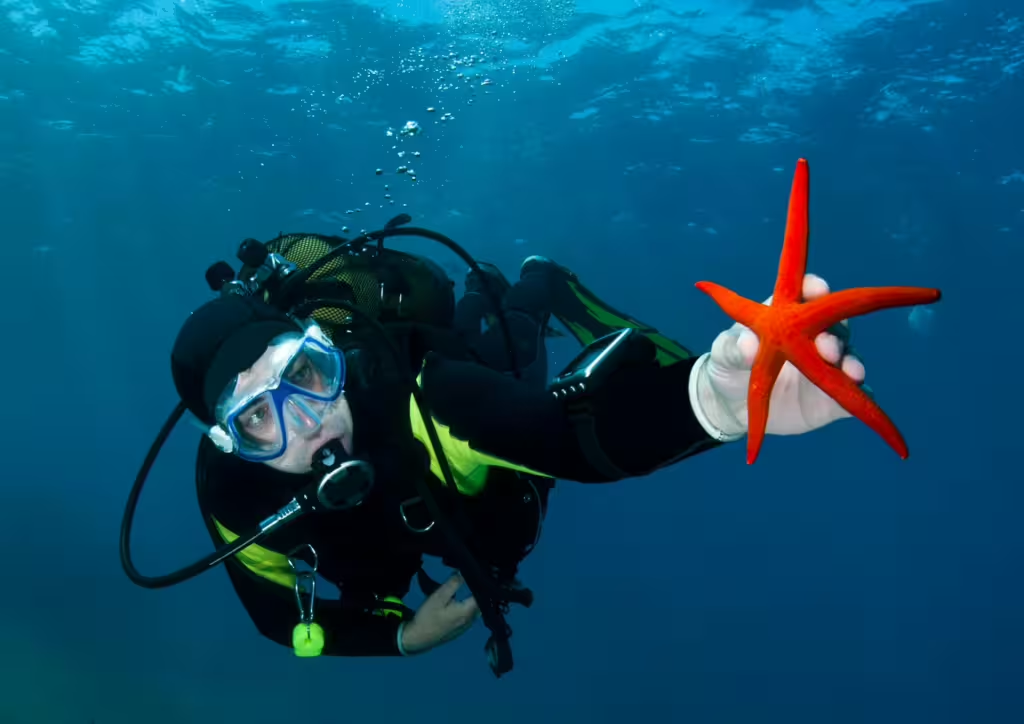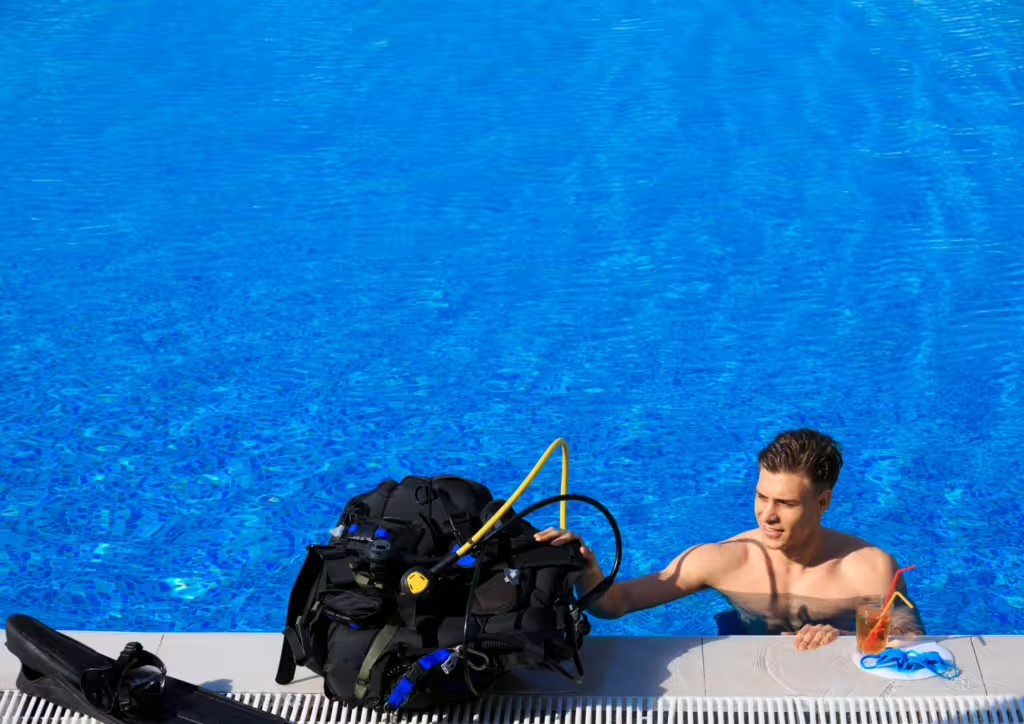If you’ve ever contemplated taking the plunge into the underwater world, enrolling in a diving course in Bali might just be the perfect option for you. However, before you pack your bags and head to this tropical paradise, it’s essential to understand the cost involved in completing a diving course. In this blog, we will provide you with a comprehensive breakdown of the expenses you can expect when pursuing a diving course in Bali, helping you plan your adventure with confidence.
Overview of Diving Courses in Bali
Diving Course in Bali is a popular choice for travelers looking to explore the island’s vibrant underwater world. Whether you’re a complete beginner or an experienced diver seeking advanced certification, there’s a diving course in Bali suited to every level. These courses are offered by many dive centers across the island, often including equipment rental, classroom sessions, and open water training.
One of the most common options is the PADI Open Water Diver—a great entry-level diving course in Bali that combines theory, confined water practice, and four open water dives. The cost of a diving course in Bali typically ranges from $300 to $600, depending on the dive center, course type, and whether extras like gear or accommodation are included. With so many choices available, it’s worth comparing options to find the best diving course in Bali for your needs and budget, ensuring an unforgettable experience beneath the waves.
Cost Factors for Diving Courses

When considering a diving course in Bali, several key cost factors come into play. First and foremost, the choice of diving school can greatly influence pricing. Established diving centers with well-trained instructors and high safety standards may charge a premium, but they often provide superior experience and equipment. Certification levels also factor into the costs; for instance, a beginner’s course may range from $300 to $500, while advanced or specialty courses can significantly increase that amount.
Additionally, the location of the diving course within Bali can impact prices, with areas known for their diving spots tending to be more expensive due to higher demand. Other expenses associated with a diving course in Bali can include required equipment rental fees, which usually range from $50 to $150, depending on the duration and type of course.
Certain courses may also have extra costs for materials like textbooks or certification fees. Transportation to the dive sites, food, and accommodation can further add to the overall budget. Therefore, it’s essential to comprehensively assess these cost factors to prepare adequately for your diving adventure in Bali.
Equipment Rental and Purchase Costs
When considering a diving course in Bali, equipment rental and purchase costs are crucial components of your budget. Most diving facilities offer comprehensive packages that include equipment rental, which typically covers essentials such as wetsuits, masks, snorkels, fins, and tanks. On average, you can expect to pay around $20 to $40 per day for gear rental, depending on the dive center and the specific equipment you choose.
If you’re planning to dive frequently or participate in multiple diving courses, investing in your own gear may be more economical in the long run. The initial investment in personal equipment can range from $300 to $1,000, based on your preferences for quality and brand. Also, owning your gear gives you the comfort and fit that rental equipment may not provide, ensuring a more enjoyable diving experience. In addition to the basic gear, certain advanced certification courses may require specialized equipment, which could increase your overall costs.
For example, classes in nitrox diving or underwater photography will necessitate additional tools and training. It’s beneficial to check with your chosen dive school for any recommendations on purchasing quality gear. Some centers even offer discounts or package deals if you decide to buy equipment from them. By understanding these various costs associated with equipment rental and purchase, you’ll be better prepared for your diving course in Bali, allowing for a more enjoyable and stress-free diving adventure.
Hidden Fees to Consider

When enrolling in a diving course in Bali, it’s essential to look beyond the advertised prices and consider the hidden fees that can significantly impact your overall budget. Many schools and operators might include the cost of basic training, equipment rental, and certification in their packages but can exclude other necessary expenses such as transportation to the dive sites, accommodation, and meals.
Additionally, students often overlook the costs associated with insurance, which is vital when partaking in any water sports. It’s advisable to ask about these additional expenses upfront to prevent any surprises later on. Furthermore, some diving schools may charge for optional extras like guided dives, specialty courses, or professional-grade equipment upgrades, which can add to your overall cost.
Certain locations might also impose extra charges for specific sites due to their unique biodiversity and popularity among divers. Being well-prepared and understanding these hidden fees can help you accurately budget for your diving adventure in Bali, ensuring that you will have the most rewarding experience without financial stress.
Comparing Prices Across Different Dive Shops
When considering a diving course in Bali, it’s essential to compare prices across various dive shops to ensure you’re getting the best value for your investment. Prices for diving courses can vary significantly based on the reputation of the dive shop, the length of the course, and the inclusivity of the package. On average, basic Open Water Diver courses may range from $300 to $500, including rental gear and certification fees.
High-end or widely recognized dive shops often charge slightly more, but they may offer better facilities, experienced instructors, and additional perks like free transfers from your accommodation. In addition to the basic course fees, be aware of potential extras that may not be included in the initial quote. For example, some dive shops might offer discounted rates for group bookings or include professional photography services at an additional cost.
It’s also worth noting that the peak season can cause prices to rise due to increased demand. Therefore, doing thorough research by comparing prices and reading reviews across different dive shops can help you make an informed decision and ultimately enjoy a memorable underwater adventure in Bali.
Tips for Budgeting Your Diving Experience
When planning for a diving course in Bali, budgeting properly is essential for a fulfilling experience without breaking the bank. Start by researching different diving schools, as prices can vary significantly based on the location, level of training, and included amenities. Take note of what’s included in each package—some courses may offer equipment rental, meals, or accommodation, while others charge these items separately.
Comparing prices and reading reviews can also provide insights into which schools offer the best value for your investment. Be sure to factor in any additional fees, such as transportation to and from dive sites, as well as any potential hidden charges that could arise during your course. Additionally, setting aside a small buffer in your budget can be a wise decision. Bali offers a plethora of attractions and activities that may pique your interest outside of diving.
From exploring vibrant marine life to indulging in local cuisine, these experiences can add up quickly. Allocating a portion of your budget for leisure activities will ensure that you make the most out of your visit while still being able to complete your diving course. Keeping track of your expenses and prioritizing your spending, whether on diving or exploring other parts of Bali, will help you have a memorable diving experience without compromising essential needs or activities.
Is Diving in Bali Worth the Investment?

Diving in Bali is often considered a once-in-a-lifetime experience, which leads many to wonder if the investment is truly worthwhile. The idyllic scenery, rich marine biodiversity, and crystal-clear waters create an underwater paradise that attracts divers from all over the globe. A diving course in Bali not only offers the opportunity to learn essential skills but also provides access to stunning dive sites teeming with vibrant coral reefs and unique aquatic life.
When evaluating whether this experience is worth the investment, it’s crucial to consider the long-lasting memories and the chance to explore a world that is often inaccessible to those who stay on the surface. Beyond the breathtaking scenery and unforgettable experiences, the cost of a diving course in Bali is relatively competitive compared to other popular diving destinations worldwide. Many schools offer affordable packages that include everything from equipment rental to certification courses.
Additionally, the quality of training is generally high, with experienced instructors and well-structured programs. Taking all these factors into account, many divers find that the investment in a diving course in Bali not only enhances their skill set but also deepens their appreciation for the ocean and the importance of marine conservation. Ultimately, the answer to whether diving in Bali is worth the investment lies in the transformative experiences that wait beneath the waves.
Diving into Your Bali Adventure
In conclusion, understanding the cost breakdown of a diving course in Bali is essential for any adventure seeker looking to explore the underwater paradise. From equipment rentals to certification fees, every aspect contributes to an unforgettable experience beneath the waves. By budgeting accordingly and considering the variable factors, you can embark on this journey with confidence, knowing you’re well-prepared for all that Bali has to offer under the sea.
As you plan your diving course in Bali, remember that the investment extends beyond just the monetary aspect; it’s about creating lasting memories and appreciating the breathtaking marine life. Consider the importance of selecting a reputable diving school and the potential for future adventures. Happy diving, and may you unlock the wonders that await you in Bali’s stunning waters!

